|
Books Should Be Free Loyal Books Free Public Domain Audiobooks & eBook Downloads |
|
|
Books Should Be Free Loyal Books Free Public Domain Audiobooks & eBook Downloads |
|
Top Authors |
|---|
|
Book type:
Sort by:
|
By: Sir Henry Morton Stanley (1841-1904) | |
|---|---|
 How I Found Livingstone
How I Found Livingstone
Sir Henry Morton Stanley is famously quoted for saying “Dr Livingstone, i Presume?”. Born in Wales, he migrated over to the United States at the age of 18, and eventually became an overseas correspondent for the New York Herald. In 1869 Stanley was told by James Gordon Bennett Jr to find Livingstone, a scottish missionary and explorer, who was lost in central Africa. When Stanley commented on the cost Bennett’s reply was: “Well, I will tell you what you will do. Draw a thousand pounds now; and when you have gone through that, draw another thousand, and when that is spent, draw another thousand, and when you have finished that, draw another thousand, and so on; but, FIND LIVINGSTONE. | |
By: Frank Harris | |
|---|---|
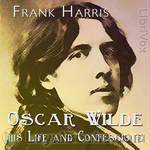 Oscar Wilde: His Life and Confessions
Oscar Wilde: His Life and Confessions
Consumers of biography are familiar with the division between memoirs of the living or recently dead written by those who “knew” the subject more or less intimately, and the more objective or scholarly accounts produced by later generations.In the case of Wilde, as presented to us by Frank Harris, we are in a way doubly estranged from the subject. We meet with Oscar the charismatic talker, whose tone of voice can never be reproduced – even if a more scrupulous biographer had set down his words accurately – and we are perhaps already aware of him as Wilde the self-destructive celebrity who uneasily fills the place of the premier gay icon and martyr in our contemporary view... | |
By: Edith Howes (1872-1954) | |
|---|---|
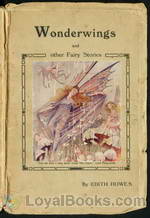 Wonderwings and other Fairy Stories
Wonderwings and other Fairy Stories
A collection of three short stories about fairies, complete with good moral lessons (as every fairy tale should be). | |
By: St. George Stock (b. 1850) | |
|---|---|
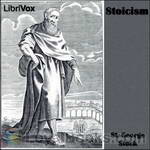 Stoicism
Stoicism
This short book is part of the Philosophies Ancient and Modern series, which attempts to make Western philosophy more accessible to the general public. In this volume, George Stock provides a concise primer on Stoicism, the ancient philosophy that maintained that the universe is governed entirely by fate, and that humans can achieve happiness only by cultivating a calm acceptance of the vicissitudes of life. Among the Stoics of the Greek and Roman world were its founder, Zeno, the former slave Epictetus, and the Roman emperor Marcus Aurelius... | |
By: Edward Ormondroyd | |
|---|---|
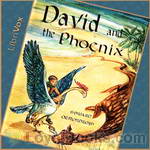 David and the Phoenix
David and the Phoenix
David knew that one should be prepared for anything when one climbs a mountain, but he never dreamed what he would find that June morning on the mountain ledge. There stood an enormous bird, with a head like an eagle, a neck like a swan, and a scarlet crest. The most astonishing thing was that the bird had an open book on the ground and was reading from it! This was David’s first sight of the fabulous Phoenix and the beginning of a pleasant and profitable partnership. The Phoenix found a great... | |
By: Oliver Optic (1822-1897) | |
|---|---|
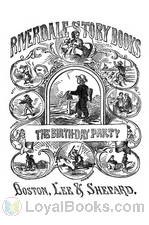 The Birthday Party, A Story For Little Folks
The Birthday Party, A Story For Little Folks
Flora Lee’s birthday came in July. Her mother wished very much to celebrate the occasion in a proper manner. Flora was a good girl, and her parents were always glad to do any thing they could to please her, and to increase her happiness. | |
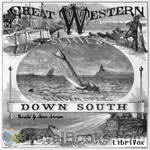 Down South or Yacht Adventure in Florida
Down South or Yacht Adventure in Florida
"Down South" is the fifth and last volume but one of the "Great Western Series." The action of the story is confined entirely to Florida; and this fact may seem to belie the title of the Series. But the young yachtsman still maintains his hold upon the scenes of his earlier life in Michigan, and his letters come regularly from that State. If he were old enough to vote, he could do so only in Michigan; and therefore he has not lost his right to claim a residence there during his temporary sojourn in the South... | |
 Up the River
Up the River
Up the River is the sixth and last of “The Great Western Series.” The events of the story occur on the coast of Florida, in the Gulf of Mexico, and on the Mississippi River. The volume and the series close with the return of the hero, by a route not often taken by tourists, to his home in Michigan. His voyaging on the ocean, the Great Lakes, and the Father of Waters, is finished for the present; but the writer believes that his principal character has grown wiser and better since he was first introduced to the reader... | |
By: J. M. Barrie (1860-1937) | |
|---|---|
 Echoes of the War
Echoes of the War
Short stories with dramatic parts about civilian life in London during the First World War. Some humorous moments. By the author of "Peter Pan". | |
 Little White Bird
Little White Bird
"A children's book, sharp social commentary and sad psychological thriller about a man's search for a sense of belonging. All in one amazing and lyrical collection. This is the first book in which Peter Pan starts to appear. His adventure in Kensington Gardens are first narrated here. Other than that, it offers a magical portrait of contemporary London, and a realistic tale of a family to which every one of us could have belonged." | |
 Dear Brutus
Dear Brutus
At a house in the country 8 guests are invited to enter a magical wood to see what might have happened had they made a different choice in life. Even though they are warned away from the wood, they take a chance and enter. The title comes from Shakespeare: "The fault lies in our selves, dear Brutus, not in our stars...," and summarizes the theme of this play: given a second chance, will people still make the same mistakes? | |
By: Charlotte M. Yonge (1823-1901) | |
|---|---|
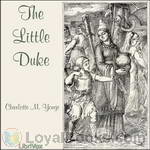 The Little Duke
The Little Duke
The Little Duke by Charlotte M. Yonge is historical fiction based on the the life of Richard, Duke of Normandy. He assumes the title of Duke at only 8 years of age, after his father is murdered. The story first appeared in her magazine, The Monthly Packet, as a serial. | |
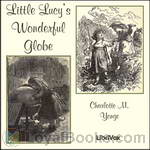 Little Lucy's Wonderful Globe
Little Lucy's Wonderful Globe
Travel with Little Lucy around the globe and learn a little geography and small bits about other cultures. | |
By: Alexandre Exquemelin (c. 1645-1707) | |
|---|---|
 The Pirates of Panama
The Pirates of Panama
This volume was originally written in Dutch by John Esquemeling, and first published in Amsterdam in 1678 under the title of De Americaeneche Zee Roovers. It immediately became very popular and this first hand history of the Buccaneers of America was soon translated into the principal European languages. The first English edition was printed in 1684. Esquemeling served the Buccaneers in the capacity of barber-surgeon, and was present at all their exploits. Little did he suspect that his first hand observations would some day be cherished as the only authentic and true history of the Buccaneers and Marooners of the Spanish Main... | |
By: Arthur Empey | |
|---|---|
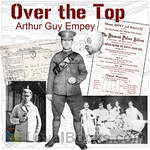 Over the Top
Over the Top
Arthur Guy Empey was an American who responded to the sinking of the Lusitania by enlisting with the British Army to fight in France. His experiences in the trenches, including his ultimate wounding and convalescence, became this book. When published in 1917, it was a major hit and helped the recruiting effort when America entered the Great War. If you’ve heard of the horror of trench warfare in WWI and want to see it from below dirt level, Empey offers it all here. Also included is Empey’s popular “Tommy’s Dictionary of the Trenches” which humorously demistifies the slang used by the British soldier. | |
By: Lieh Tzu | |
|---|---|
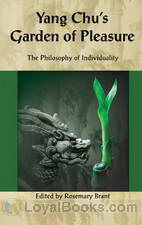 Yang Chu's Garden of Pleasure
Yang Chu's Garden of Pleasure
At the Court of Liang at the period of Yang Chu, about 300 B.C., the philosophers were treated as guests of the reigning king, who reserved for them lodging and maintenance, and encouraged all who had any pretence to the pursuit of truth and wisdom. Whether or not Yang Chu was actually a native of the Wei State, or whether he came there drawn by the attraction of a critical and unrivalled audience, it is at least certain that he settled there as small proprietor, probably in the reign of King Hwei, and continued there till his death, about 250 B... | |
By: George Bernard Shaw | |
|---|---|
 Candida
Candida
Candida, a comedy by playwright George Bernard Shaw, was first published in 1898, as part of his Plays Pleasant. The central characters are clergyman James Morell, his wife Candida and a youthful poet, Eugene Marchbanks, who tries to win Candida's affections. The play questions Victorian notions of love and marriage, asking what a woman really desires from her husband. The cleric is a Fabian Socialist, allowing Shaw—himself a Fabian—to weave political issues, current at the time, into the story. | |
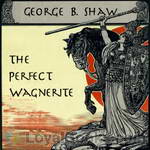 The Perfect Wagnerite
The Perfect Wagnerite
The Perfect Wagnerite: A Commentary on the Niblung's Ring (originally published London, 1898) is a philosophical commentary on Richard Wagner's Der Ring des Nibelungen, by the Irish writer George Bernard Shaw. Shaw offered it to those enthusiastic admirers of Wagner who "were unable to follow his ideas, and do not in the least understand the dilemma of Wotan." He interprets the Ring in Marxian terms as an allegory of the collapse of capitalism from its internal contradictions. Musicologically, his... | |
 Major Barbara
Major Barbara
George Bernard Shaw's Major Barbara focuses on the family of aristocratic Lady Britomart Undershaft and her estranged husband Andrew, a millionaire armaments manufacturer. Their daughters Sarah and Barbara are both engaged to be married, and Lady Britomart decides to ask Andrew for monetary support. Barbara is a Major in the Salvation Army, and agrees to let her father visit the mission in the East End of London where she works. In exchange, she agrees to visit his munitions factory. The conflict between Barbara's philanthropic idealism and her father's hard-headed capitalism clash when he decides he wants to fund the Salvation Army... | |
 Don Juan in Hell
Don Juan in Hell
Don Juan in Hell is an excerpt (Act 3, Scene 2) from George Bernard Shaw’s Man and Superman. It is often performed as a stand-alone play. In it, three characters from Mozart’s Don Giovanni (Don Juan, Dona Ana, and the statue of the Commendatore, Dona Ana’s father) meet in Hell and, joined by the Devil, have a philosophical debate on a variety of subjects, including Heaven and Hell, men, women and marriage. In the end, they all decide where they will spend eternity. | |
 Heartbreak House
Heartbreak House
On the eve of World War I, Ellie Dunn, her father, and her fiancé are invited to one of Hesione Hushabye’s infamous dinner parties. Unfortunately, her fiancé is a scoundrel, her father’s a bumbling prig, and she’s actually in love with Hector, Hesione’s husband. This bold mix of farce and tragedy lampoons British society as it blithely sinks towards disaster. | |
 Caesar and Cleopatra
Caesar and Cleopatra
| |
 Misalliance
Misalliance
Misalliance, a 1910 play by George Bernard Shaw, is an ironic examination of the romantic entanglements of a varied group of people gathered at a wealthy man's country home on a summer weekend. Most of the romantic interest centers on the host's daughter, Hypatia Tarleton, a typical Shaw heroine who exemplifies his lifelong theory that in courtship, women are the relentless pursuers and men the apprehensively pursued. Hypatia is the daughter of newly-wealthy John Tarleton who made his fortune in the unglamorous but lucrative underwear business... | |
By: Jonathan Edwards (1703-1758) | |
|---|---|
 Select Sermons of Jonathan Edwards
Select Sermons of Jonathan Edwards
Jonathan Edwards was a colonial American Congregational preacher, theologian, and missionary to Native Americans. Edwards “is widely acknowledged to be America’s most important and original philosophical theologian.” His work is very broad in scope, but he is often associated with his defense of Calvinist theology, the metaphysics of theological determinism, and the Puritan heritage. His famous sermon “Sinners in the Hands of an Angry God,” emphasized the just wrath of God against sin and contrasted it with the provision of God for salvation; the intensity of his preaching sometimes resulted in members of the audience fainting, swooning, and other more obtrusive reactions... | |
By: Henri Poincaré (1854-1912) | |
|---|---|
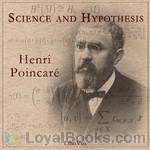 Science and Hypothesis
Science and Hypothesis
Jules Henri Poincaré (1854–1912) was one of France’s greatest mathematicians and theoretical physicists, and a philosopher of science. As a mathematician and physicist, he made many original fundamental contributions to pure and applied mathematics, mathematical physics, and celestial mechanics. He was responsible for formulating the Poincaré conjecture, one of the most famous problems in mathematics. In his research on the three-body problem, Poincaré became the first person to discover a chaotic deterministic system which laid the foundations of modern chaos theory... | |
By: Gilbert White (1720-1793) | |
|---|---|
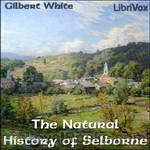 The Natural History of Selborne
The Natural History of Selborne
The Reverend Gilbert White was the curate of the village of Selborne, a village in Hampshire, from 1784 to his death in 1793, living most of his life in the village. The book is in the form of a collection of letters to two friends, discussing the natural history of the areas that he knew, and natural history in general. White’s intense curiosity and his love for the world about him flow through his simple, straightforward style, and a gentle sense of humour colours many of his anecdotes. | |
By: Francis Parkman, Jr. | |
|---|---|
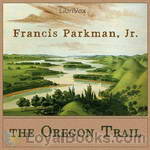 The Oregon Trail
The Oregon Trail
The book is a breezy, first-person account of a 2 month summer tour of the U.S. states of Nebraska, Wyoming, Colorado, and Kansas when Parkman was 23. Proofed and produced by Karen Merline. | |
By: Edward R. Shaw (1855-1903) | |
|---|---|
 Discoverers and Explorers
Discoverers and Explorers
Tales of the brave and daring explorers that ventured into the unknown “Sea of Darkness” where it was thought monsters and angry gods lived. They dared to sail near the equator which was thought to have such intense heat that it would boil the ocean water. It was also commonly thought at the time that the world was flat, and the ships would fall off the face of the earth. These men overcame these fears to explore and discover new lands. | |
By: William R. Lighton (1866-1923) | |
|---|---|
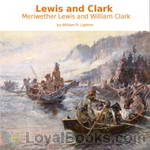 Lewis and Clark: Meriwether Lewis and William Clark
Lewis and Clark: Meriwether Lewis and William Clark
Meriwether Lewis and William Clark – In the years 1804, 1805, and 1806, two men commanded an expedition which explored the wilderness that stretched from the mouth of the Missouri River to where the Columbia enters the Pacific, and dedicated to civilization a new empire. Their names were Meriwether Lewis and William Clark. This book relates that adventure from it’s inception through it’s completion as well as the effect the expedition had upon the history of the United States. | |
By: Charles King | |
|---|---|
 The Daughter of the Sioux,
The Daughter of the Sioux,
Charles King (1844 – 1933) was a United States soldier and a distinguished writer. He was the son of Civil War general Rufus King and great grandson of Rufus King, one of the signers of the Declaration of Independence. He graduated from West point in 1866 and served in the Army during the Indian Wars under George Crook. He was wounded in the arm forcing his retirement from the regular army. During this time he became acquainted with Buffalo Bill Cody. King would later write scripts for several of Cody’s silent films... | |
By: Charles King (1844-1933) | |
|---|---|
 Starlight Ranch And Other Stories Of Army Life On The Frontier
Starlight Ranch And Other Stories Of Army Life On The Frontier
Five stories of Army life in the mid to late 19th century. Charles King (1844 – 1933) was a United States soldier and a distinguished writer. He wrote and edited over 60 books and novels. Among his list of titles are Campaigning with Crook, Fort Frayne, Under Fire and Daughter of the Sioux. | |
By: William Beatty, M.D. (1773-1842) | |
|---|---|
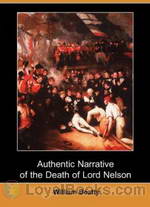 The Death of Lord Nelson
The Death of Lord Nelson
“The Surgeon of the late illustrious Lord NELSON feels himself called upon, from the responsible situation which he held on the eventful day of the 21st of October 1805, to lay before the British Nation the following Narrative. It contains an account of the most interesting incidents which occurred on board the Victory. (Lord NELSON’s flag-ship) from the time of her sailing from England, in the month of September, till the day of battle inclusively”. – William Beatty | |
By: Owen Wister (1860-1938) | |
|---|---|
 The Virginian
The Virginian
Ostensibly a love story, the novel really revolves around a highly mythologized version of the Johnson County War in 1890’s Wyoming … The novel takes the side of the large ranchers, and depicts the lynchings as frontier justice, meted out by the protagonist, who is a member of a natural aristocracy among men. | |
 The Dragon of Wantley
The Dragon of Wantley
A novel, The Dragon of Wantley, was written by Owen Wister (best known as the author of The Virginian) in 1892. Published by Lipincott Press, the story is a comic "burlesque" (in the author's words), concerning the "true" story of the Dragon. It is a romantic story set at Christmastime in the early 13th century. The book was a surprise success, going through four editions over the next ten years. This is the 1895 edition. | |
 Red Men and White
Red Men and White
These eight stories are made from our Western Frontier as it was in a past as near as yesterday and almost as by-gone as the Revolution; so swiftly do we proceed. They belong to each other in a kinship of life and manners, and a little through the nearer tie of having here and there a character in common. Thus they resemble faintly the separate parts of a whole, and gain, perhaps, something of the invaluable weight of length; and they have been received by my closest friends with suspicion. ...When... | |
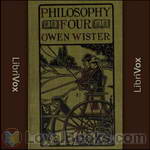 Philosophy 4: A Story of Harvard University
Philosophy 4: A Story of Harvard University
Owen Wister's wry humor enlivens this comedic story of three sophomores during exam week at Harvard. | |
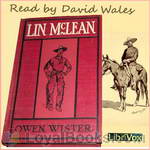 Lin McLean
Lin McLean
Lin McLean is an unaffected, attractive young cowboy in the Wyoming territory before statehood. This book is various stories in his life. | |
 The Jimmyjohn Boss and Other Stories
The Jimmyjohn Boss and Other Stories
This is the fifth published book of Owen Wister, author of the archetypical Western novel, The Virginian. Published in 1900, it comprises eight Western short stories. | |
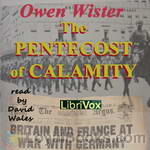 The Pentecost of Calamity
The Pentecost of Calamity
Nonfiction. Appalled by the savagery of World War I, Owen Wister in 1915 published an attempt to move the United States out of neutrality into joining the Allies against Germany. His aim was the quicker defeat of that nation. (Wister: “the new Trinity of German worship – the Super-man, the Super-race, and the Super-state.”) He was but one of many literary personages who joined in this effort. A moving quote: “Perhaps nothing save calamity will teach us what Europe is thankful to have learned again – that some things are worse than war, and that you can pay too high a price for peace; but that you cannot pay too high for the finding and keeping of your own soul.” | |
 Lady Baltimore
Lady Baltimore
Augustus visits King's Port, South Carolina, at the request of his Aunt Carola, and at her expense. She wants him to research geneaologies and records to find proof that he is descended from royalty so that he can join her exclusive club, the Colonial Society. While there, he becomes involved in a love affair between John Mayrant and Eliza La Heu. | |
By: Luigi Capuana | |
|---|---|
 A Vampire
A Vampire
A suspenseful vampire tale. Translated from the original Italian text by Erin O'Rourke. | |
By: John Owen (1616-1683) | |
|---|---|
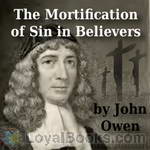 The Mortification of Sin in Believers
The Mortification of Sin in Believers
John Owen, in this Puritan classic, writes succinctly of the matters of the heart in dealing with sin in the life of the Christian. In a way that cuts right to the heart of the matter while leaving no room for excuses, Owen encourages the Christian to “Be killing sin or sin will be killing you.” | |
By: Arthur William Knapp (1880-1939) | |
|---|---|
 Cocoa and Chocolate: Their History from Plantation to Consumer
Cocoa and Chocolate: Their History from Plantation to Consumer
As that heavenly bit of chocolate melts in our mouths, we give little thought as to where it came from, the arduous work that went in to its creation, and the complex process of its maturation from a bean to the delicacy we all enjoy. This “little book” details everything you have ever wanted to know (and some things you never knew you wanted to know) about cocoa and chocolate from how the trees are planted and sustained to which countries produce the most cacao beans. Do cacao beans from various... | |
By: Gerard Nolst Trenité | |
|---|---|
 The Chaos
The Chaos
“The Chaos” is a poem which demonstrates the irregularity of English spelling and pronunciation, written by Gerard Nolst Trenité (1870-1946), also known under the pseudonym Charivarius. It first appeared in an appendix to the author’s 1920 textbook Drop Your Foreign Accent: engelsche uitspraakoefeningen. | |
By: William Joseph Long (1867-1952) | |
|---|---|
 Ways of Wood Folk
Ways of Wood Folk
Late nineteenth-century naturalist William J. Long invites us in to the secret worlds of the woodland animals. Containing Long's own animal observations along with stories related to him by other humans who inhabit the woods, these stories give us an insight into the behavior of wild animals as they go about their lives in their own secret places deep in the forests of eastern North America. Although Long was accused in his day of anthropomorphizing the animals he wrote about, readers who are familiar with any of the animals he writes of will have glimpses of recognition at behaviors they have seen for themselves and explore the deeper meanings these actions have in that animal's life... | |
 Wilderness Ways
Wilderness Ways
Late nineteenth-century naturalist William J. Long invites us into the secret worlds of woodland animals in this, his second, fascinating book. Long's stories of the secret lives of woodland animals come from time he spent in the woods, observing the behaviors and characteristics of the wilderness inhabitants directly. His method? Sit quietly, wait (sometimes for hours), and the animals will come. This book, unlike his first, Ways of Wood Folk, seems to be directed at his critics who accused him... | |
 Secrets of the Woods
Secrets of the Woods
The unique merit of this nature student rests in his fascinating style of writing, which invariably interests young and old; for without this element his pioneer work in the realm of nature would now be familiar only to scientists, introducing people everywhere into the wonderland of nature hitherto entirely closed to all. This is another chapter in the shy, wild life of the fields and woods. Little Toohkees, the wood mouse that dies of fright in the author’s hand; the mother otter, Keeonekh,... | |
By: Stella M. Francis | |
|---|---|
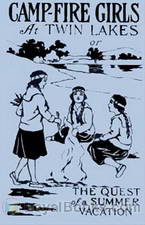 Campfire Girls at Twin Lakes or The Quest of a Summer Vacation
Campfire Girls at Twin Lakes or The Quest of a Summer Vacation
“Girls, I have some great news for you. I’m sure you’ll be interested, and I hope you’ll be as delighted as I am. Come on, all of you. Gather around in a circle just as if we were going to have a Council Fire and I’ll tell you something that will—that will—Teddy Bear your teeth.” A chorus of laughter, just a little derisive, greeted Katherine Crane’s enigmatical figure of speech. The merriment came from eleven members of Flamingo Camp Fire, who proceeded to form an arc of a circle in front of the speaker on the hillside grass plot near the white canvas tents of the girls’ camp. (Gutenberg) | |
 Campfire Girls In The Allegheny Mountains or, A Christmas Success Against Odds
Campfire Girls In The Allegheny Mountains or, A Christmas Success Against Odds
The Camp Fire Girls books is a series of fiction novels written for children by various authors from 1912 into the 1930s. (Wikipedia) | |
By: Charlotte Lennox (1730-1804) | |
|---|---|
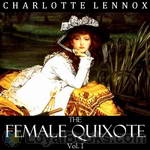 The Female Quixote
The Female Quixote
The novel formally inverts Don Quixote: as the don mistakes himself for the knightly hero of a Romance, so Arabella mistakes herself for the maiden love of a Romance. While the don thinks it his duty to praise the platonically pure damsels he meets (such as the woman he loves), so Arabella believes it is in her power to kill with a look and it is the duty of her lovers to suffer ordeals on her behalf. | |
By: Charles W. Leadbeater (1854-1934) | |
|---|---|
 Vegetarianism and Occultism
Vegetarianism and Occultism
How does occultism regard vegetarianism? It regards it very favorably, and that for many reasons. These reasons may be divided into two classes: those which are ordinary and physical, and those which are occult or hidden. Let us see in detail why a vegetarian diet is emphatically the purest and the best. | |
By: Thomas Gilbert Pearson (1873-1943) | |
|---|---|
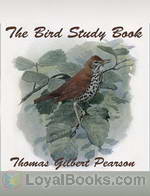 The Bird Study Book
The Bird Study Book
Do you enjoy birdwatching? Would you like to learn a little more about the early conservations efforts to protect wild birds? In the Preface to The Bird Study Book, Pearson tells us “This book was written for the consideration of that ever-increasing class of Americans who are interested in acquiring a greater familiarity with the habits and activities of wild birds. Attention is also given to the relation of birds to mankind and the effect of civilisation on the bird-life of the country. ” An avid ornithologist, T... | |
By: John McTaggart (1866-1925) | |
|---|---|
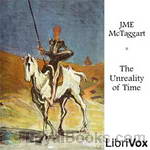 The Unreality of Time
The Unreality of Time
John McTaggart (1866-1925) was a British metaphysician and philosophical idealist. In this famous article for the periodical Mind, he introduced the notion of the A, B and C series, which was to become a leading theory in explaining the nature of time. | |
By: Sir Walter Raleigh (1552-1618) | |
|---|---|
 A selection of poems by Sir Walter Raleigh
A selection of poems by Sir Walter Raleigh
Sir Walter Raleigh (c. 1552 – 29 October 1618) was an English aristocrat, writer, poet, soldier, courtier, spy, and explorer. He is also well known for popularising tobacco in England.Raleigh's poetry is written in the relatively straightforward, unornamented mode known as the plain style. C. S. Lewis considered Raleigh one of the era's "silver poets", a group of writers who resisted the Italian Renaissance influence of dense classical reference and elaborate poetic devices.In poems such as "What is Our Life" and "The Lie", Raleigh expresses a contemptus mundi (contempt of the world) attitude more characteristic of the Middle Ages than of the dawning era of humanistic optimism... | |
By: Ruth Edna Kelley | |
|---|---|
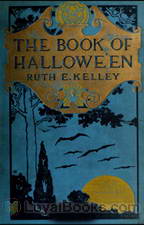 The Book of Hallowe'en
The Book of Hallowe'en
This book is intended to give the reader an account of the origin and history of Hallowe’en, how it absorbed some customs belonging to other days in the year,—such as May Day, Midsummer, and Christmas. The context is illustrated by selections from ancient and modern poetry and prose, related to Hallowe’en ideas. | |
By: Leopold von Sacher-Masoch | |
|---|---|
 Venus in Furs
Venus in Furs
The framing story concerns a man who dreams of speaking to Venus about love while she wears furs. The unnamed narrator tells his dreams to a friend, Severin, who tells him how to break him of his fascination with cruel women by reading a manuscript, Memoirs of a Supersensual Man.This manuscript tells of a man, Severin von Kusiemski, so infatuated with a woman, Wanda von Dunajew, that he requests to be treated as her slave, and encourages her to treat him in progressively more degrading ways. At... | |
By: Tobias Smollett | |
|---|---|
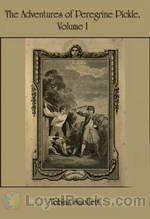 The Adventures of Peregrine Pickle
The Adventures of Peregrine Pickle
The Adventures of Peregrine Pickle is a picaresque novel by the Scottish author Tobias Smollett (1721 – 1771), first published in 1751, and revised and reissued in 1758. It is the story of the fortunes and misfortunes of the egotistical dandy Peregrine Pickle, and it provides a comic and caustic portrayal of 18th century European society. | |
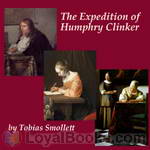 The Expedition of Humphry Clinker
The Expedition of Humphry Clinker
The Expedition of Humphry Clinker was the last of the picaresque novels of Tobias Smollett, and is considered by many to be his best and funniest work. Published in London on 17 June 1771, it is an epistolary novel, presented in the form of letters written by six different characters: Matthew Bramble, a Welsh Squire; his sister Tabitha; their niece and nephew, Jery and Lydia Melford; Tabitha’s maid Winifred Jenkins; and Lydia’s suitor, Wilson. Much of the comedy arises from differences in the descriptions of the same events by different participants... | |
By: K. Langloh Parker | |
|---|---|
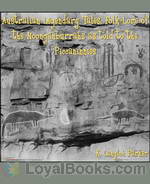 Australian Legendary Tales Folk-Lore of the Noongahburrahs As Told To The Piccaninnies
Australian Legendary Tales Folk-Lore of the Noongahburrahs As Told To The Piccaninnies
A Collection of Australian Aboriginal Legendary Folk-Lore Tales, legends of the Narran tribe, known among themselves as Noongahburrahs. | |
By: George Berkeley (1685-1753) | |
|---|---|
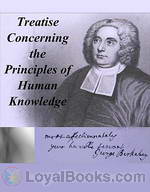 A Treatise Concerning the Principles of Human Knowledge
A Treatise Concerning the Principles of Human Knowledge
A Treatise Concerning the Principles of Human Knowledge, Part 1 (Commonly called “Treatise” when referring to Berkeley’s works) is a 1710 work by the Irish Empiricist philosopher George Berkeley. It largely seeks to refute the claims made by his contemporary John Locke about the nature of human perception. Both Locke and Berkeley agreed that there was an outside world, and it was this world which caused the ideas one has within one’s mind. Berkeley sought to prove that the outside world was also composed solely of ideas, suggesting that “Ideas can only resemble Ideas”... | |